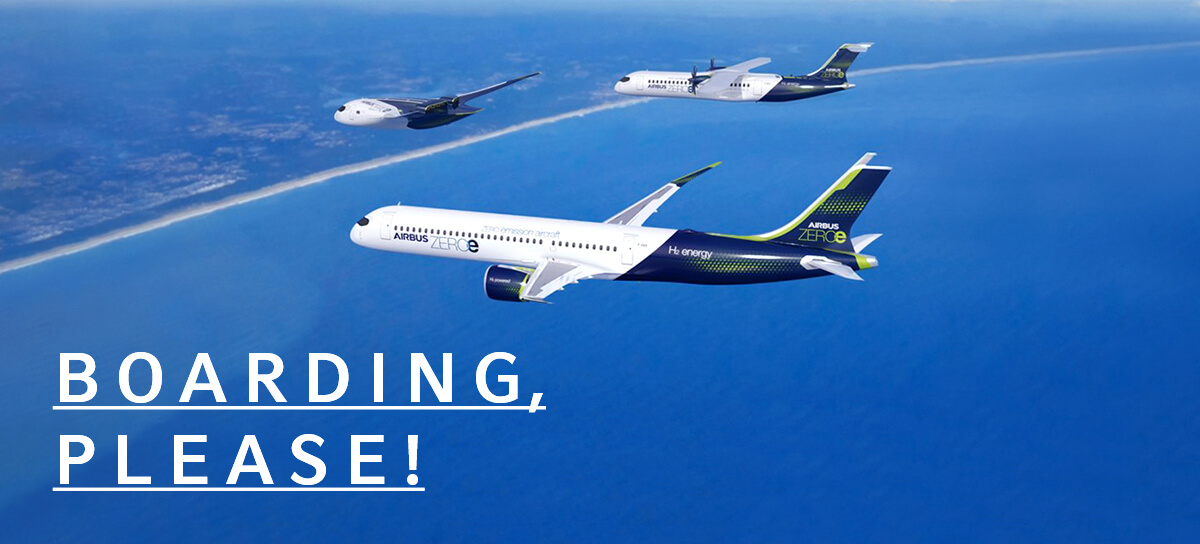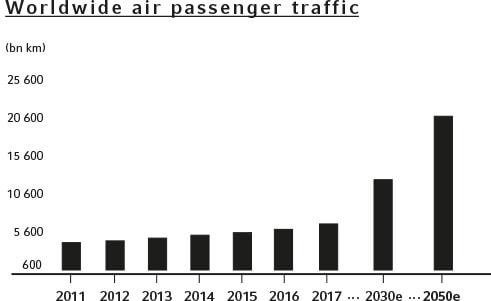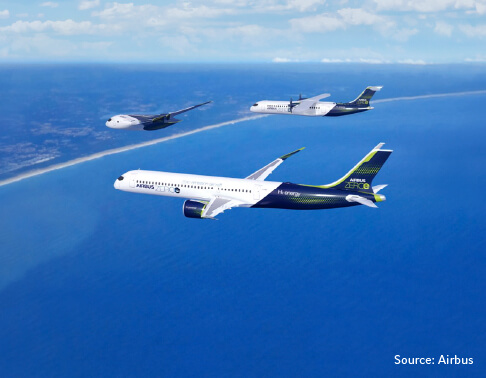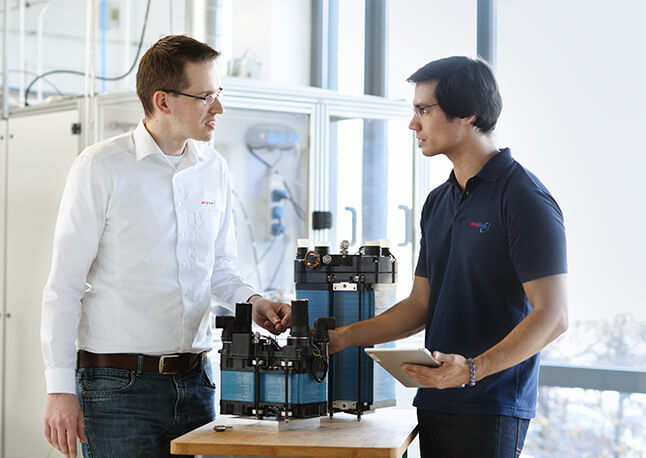
Boarding, please!
In October 2020, ElringKlinger announced its strategic partnership with Airbus. The two partners are aiming to bring about a marked reduction in emissions from air travel. Mobility must be designed as carbon-neutrally as possible in order to address the finite nature of fossil fuels and the consequences of global climate change. Over the next few years, therefore, ElringKlinger and Airbus will be working together to develop and validate fuel cell stacks suitable for use in aviation applications.
ElringKlinger’s engineers are being driven by its vision: to shape mobility in an environmentally sustainable way. The Group’s products are geared toward optimizing existing drive technologies in an effort to cut emissions. For example, its state-of-the-art gaskets enable the high pressures and temperatures required to make combustion engines consume less fossil fuel. Meanwhile, the use of plastic housing modules instead of metal components throughout the engine and the introduction of lightweight structural components help to cut back the vehicle’s weight. Lower weight means lower fuel consumption and thus reduced emissions.
But optimizing existing technologies is just the first step. If we are to be equipped to meet the challenges of the future, a second step is just as important: developing alternative drive technologies that elevate the standards applied to date. The hydrogen fuel cell gives us the opportunity to make this next step in mobility and the energy sector a reality. Hydrogen is available in a virtually unlimited supply and can be produced using environmentally friendly wind, hydro, or solar power. This makes a hydrogen fuel cell 100 % carbon-neutral, because the only “exhaust gas” produced from the sophisticated electrochemical process is water vapor.

The need for mobility in air travel is set to increase, making carbon-neutral energy production for aircraft all the more important.
Source: ICAO (2018), Annual Report of the Council 2017 for data through 2017, Data for 2030 and 2050 are ITF projections from the current demand pathway using region of origin.

The growing need for mobility is making this property of the technology particularly relevant. People are doing a lot of traveling and covering great distances, while at the same time the global population is increasing. In a globalized world, meanwhile, goods need to be transported all around the planet. Meeting this ever-greater need for mobility and transportation, while taking account of climate change, requires sustainable solutions.
Airbus is backing hydrogen as the key technology behind its ZEROe aircraft concept in a bid to develop the first-ever zero-emissions aircraft for the commercial market by 2035. To this end, the European aerospace corporation is testing and studying numerous configurations and technological alternatives that use hydrogen, including generating electrical energy from fuel cells.
Airbus studied the fuel cell stack market in great detail before signing its deal with ElringKlinger, ultimately feeling confident that the company was the best candidate in the international selection process. The high performance density of its stacks and its extensive expertise in industrial-scale manufacturing processes were key factors in the decision to opt for ElringKlinger.

ElringKlinger and Airbus work together to develop and validate aviation-compatible fuel cell stacks.
The move to focus on hydrogen was also prompted by the finding that battery power alone soon reaches its limits in certain aviation applications, such as on long distances or in larger aircraft, due to its limited performance with a given weight. With its higher energy density, hydrogen offers a powerful alternative form of energy production on board thanks to fuel cells.
The vision of carbon-neutral air travel is much more far-reaching, of course, going well beyond an aircraft’s drive technology. Airports must be equipped to ensure an adequate supply of hydrogen at all times, and aircraft must be able to be refueled with hydrogen just as reliably as they are currently with fossil fuels. If so, then “Boarding, please!” will very much be the order of the day on the carbon-neutral aircraft of tomorrow.





